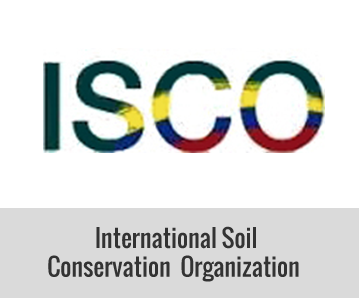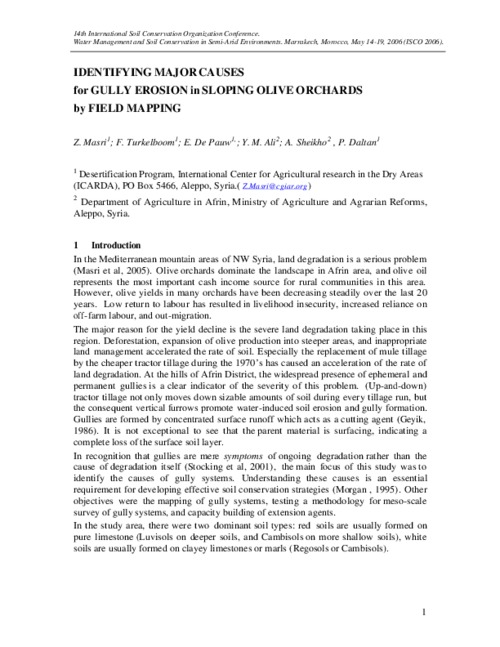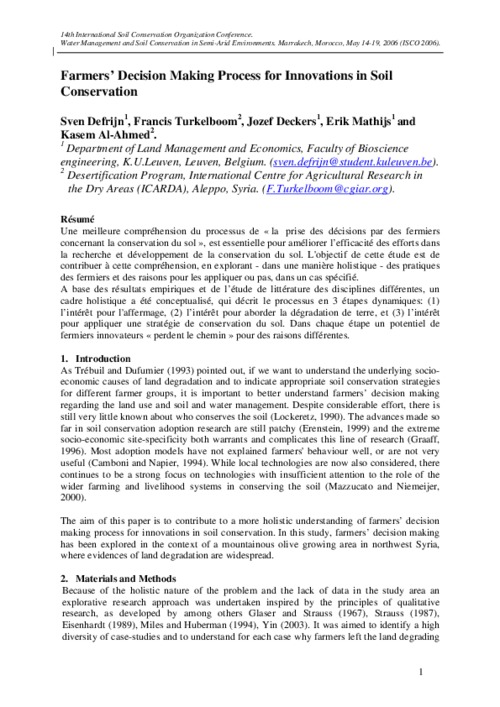The purpose of the International Soil Conservation Organization is to advocate for the sustainable, productive, and efficient use of soil and water resources. It does so through communication among participants in its meetings, the goal of which is to improve understanding of natural resource management issues. A primary feature of ISCO is the “informal” structure whereby no official “Constitution,” “Bylaws,” or membership fees are formulated or enacted. The primary responsibility for the Organization resides with the country, institutions, and individuals, including the chief host designated as the current President, who host and organize the meetings. ISCO has thrived and continues to grow with this format.
Members:
Resources
Displaying 1 - 3 of 3Use of SWAT Model for the Assessment of Land Use Changes in an Arid Watershed of Southeast Tunisia
During the last two decades, the Tunisian government has engaged in a vast program for the conservation and mobilization of natural resources. In the Jeffara region, which encompasses the study site, huge works for soil and water conservation (water harvesting) have been implemented whose immediate effects are visible but their efficiency in both the short and the long term need to be assessed and evaluated in detail (De Graaff J. and Ouessar M., 2002).
Identifying major causes for gully erosion in sloping olive orchards by field mapping
In the Mediterranean mountain areas of NW Syria, land degradation is a serious problem (Masri et al, 2005). Olive orchards dominate the landscape in Afrin area, and olive oil represents the most important cash income source for rural communities in this area. However, olive yields in many orchards have been decreasing steadily over the last 20 years. Low return to labour has resulted in livelihood insecurity, increased reliance on off-farm labour, and out-migration.
Farmers’ Decision Making Process for Innovations in Soil Conservation
The aim of this paper is to contribute to a more holistic understanding of farmers’ decision making process for innovations in soil conservation. In this study, farmers’ decision making has been explored in the context of a mountainous olive growing area in northwest Syria, where evidences of land degradation are widespread.




